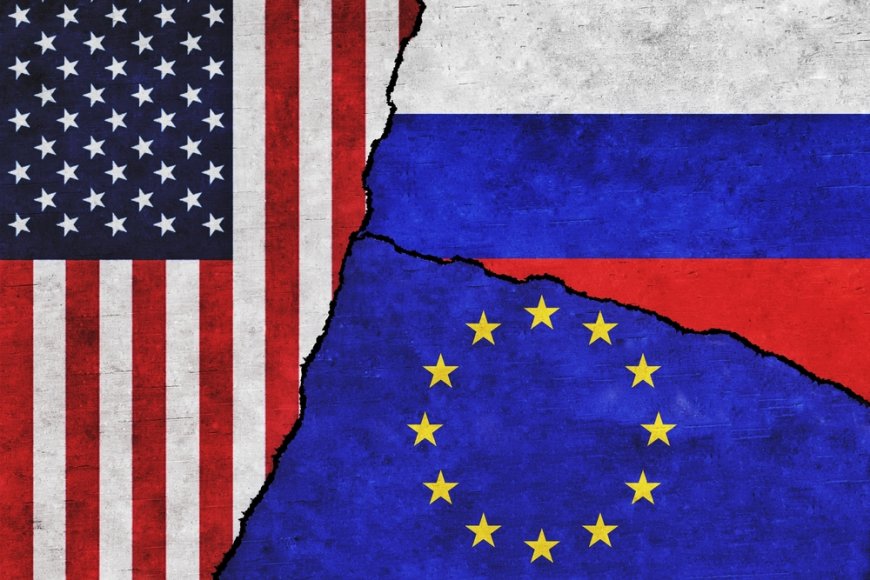Europe’s Diminishing Diplomatic Clout: A Prognosis Amid U.S.-Russia Talks
Recent developments in the Ukraine peace negotiations, catalyzed by the Trump-Putin dialogue, have thrust Europe into an exceedingly precarious position. It is now compelled to assert its diplomatic acumen or face the grim prospect of marginalization in a conflict that profoundly imperils its security and strategic interests. This unfolding scenario casts a harsh light on the intricate dynamics of transatlantic relations and Europe’s waning ability to maintain autonomous diplomacy in an era increasingly defined by multi-polarity.

By: M. Mahdavi
Recent developments in the Ukraine peace negotiations, catalyzed by the Trump-Putin dialogue, have thrust Europe into an exceedingly precarious position. It is now compelled to assert its diplomatic acumen or face the grim prospect of marginalization in a conflict that profoundly imperils its security and strategic interests. This unfolding scenario casts a harsh light on the intricate dynamics of transatlantic relations and Europe’s waning ability to maintain autonomous diplomacy in an era increasingly defined by multi-polarity.
The pivotal telephone conversation between Trump and Putin marked a decisive juncture in international diplomacy regarding the Ukraine war. Trump's direct engagement with Putin intimated a potential recalibration of the United States’ longstanding policy—a move away from the extensive military and economic support previously accorded to Ukraine toward a purported quest for a negotiated peace. Yet, this very initiative has precipitated serious concerns among European leaders about their systematic exclusion from critical decision-making processes.
Having shouldered a disproportionate share of the diplomatic, economic, and humanitarian burdens imposed by the Ukraine conflict, European policymakers find themselves caught in a dismal dilemma: either permit the United States to dictate the terms of peace or struggle to secure an equitable seat at the negotiating table. In response, key European actors, notably Germany, France, and Britain, have sought to amplify their roles in mediating the conflict. However, the crisis has unmasked Europe’s inherent vulnerability to U.S. policies—exacerbated by Washington’s formidable military and economic leverage, particularly within NATO. The ramifications of the Trump-Putin engagement unequivocally signal that, unless Europe decisively articulates its stance, it will remain consigned to the periphery of any eventual peace process.
Moreover, European leaders maintain that any viable peace initiative must inclusively integrate all pertinent stakeholders, encompassing both the European Union and its member states, to secure not only a balanced geopolitical order but also an accord reflective of European values—democracy, human rights, and regional stability. Compounding these challenges, Europe must also grapple with the enduring repercussions of the conflict: its acute energy dependence on Russia, the recalibration of its relations with neighboring states, and the broader reconfiguration of regional security architecture. As Europe is Russia’s most immediate and influential neighbor, its stakes in the ultimate outcome of the war are both profound and perilously high.
Yet, Europe’s endeavors to assert its influence in the peace negotiations are stymied by significant obstacles. The United States, having adopted a resolute stance against Russia, has marshaled considerable military and political support for Ukraine, leveraging its position to galvanize international backing and impose severe sanctions on Moscow. This robust American approach, while achieving some measure of success, has concurrently entrenched U.S. supremacy over the peace process. In stark contrast, Europe is marred by internal divisions: while nations such as Poland and the Baltic states advocate for stringent measures against Russia, countries like Germany and France prefer a cautious, dialogical approach. This discord undermines Europe's ability to present a unified and persuasive diplomatic front.
Should Europe fail to swiftly consolidate its role as a principal mediator in these negotiations, it risks relegating itself to a subordinate, peripheral role—thereby forfeiting its global stature and becoming an impotent bystander in a conflict that directly jeopardizes its security and stability. Such inaction is likely to entangle Europe in a prolonged, U.S.-dominated agenda that not only deepens transatlantic fissures but also erodes Europe’s sovereign interests. The resultant escalation in tensions over defense policy, economic sanctions, and relations with Russia portends a future in which Europe is inexorably subjugated to U.S. geopolitical imperatives.
In conclusion, the current trajectory portends a bleak future for Europe: a future wherein its diminished influence and internal discord render it increasingly vulnerable to external manipulation, ultimately undermining its ability to steer its own destiny in an evolving global order.













































